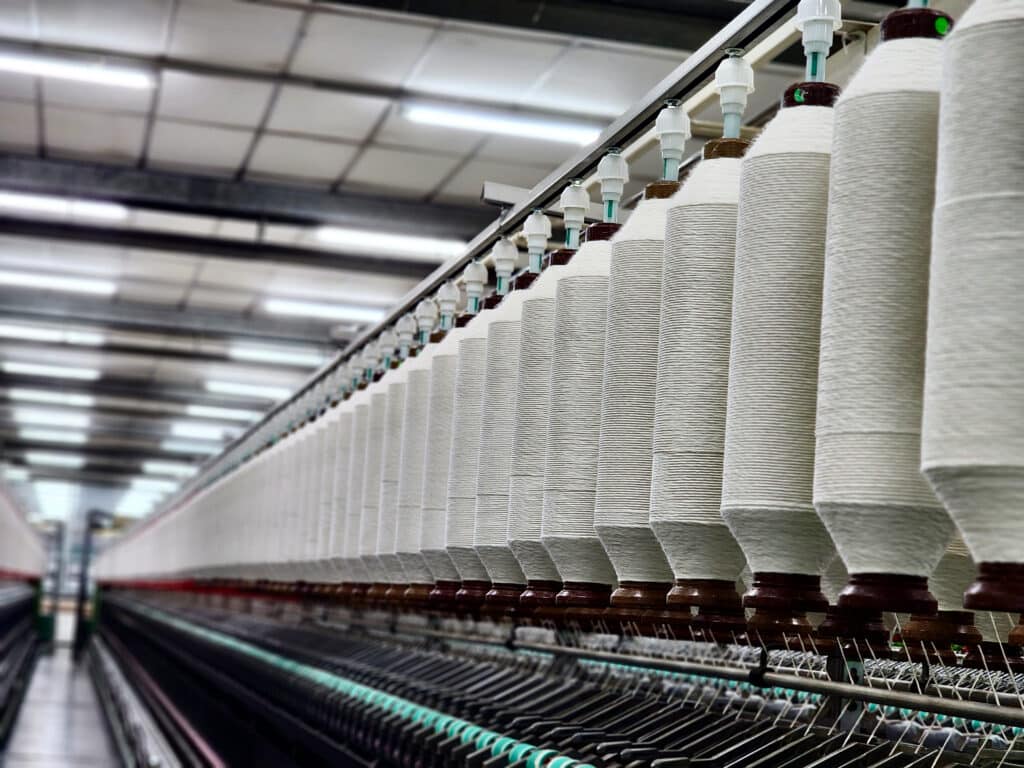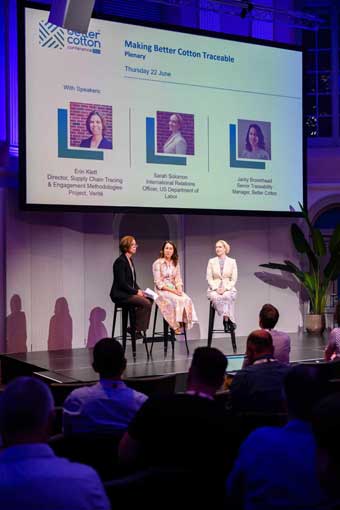
As part of Verité’s Supply Chain Tracing & Engagement Methodologies (STREAMS) project, Erin Klett, Director of STREAMS, led a panel discussion with STREAMS partner Better Cotton and the U.S. Department of Labor at the annual Better Cotton Conference in Amsterdam in June. Traceability and data were at the forefront of this two-day conference, which brought together 350 industry leaders from 38 countries to explore the most salient issues in sustainable cotton production.
Ms. Klett chaired a panel discussion with Better Cotton’s Jacky Broomhead and the U.S. Department of Labor’s Sarah Solomon on Making Better Cotton Traceable. The session explored the context of traceability from a regulatory perspective and how it is informing Better Cotton’s plans to enable the sourcing of traceable Better Cotton by fall 2023. For the past year, Verité has been collaborating with Better Cotton through the STREAMS project to support the testing of various approaches for making physical Better Cotton traceable from gin forward in the supply chain. Several chain of custody models and platforms and two additive product tracers were piloted by Better Cotton in India with STREAMS.

Erin Klett, STREAMS Project Director, leads a panel discussion with STREAMS partner Better Cotton and the U.S. Department of Labor at the annual Better Cotton Conference in Amsterdam.
During the conference, Ms. Klett also participated in a panel with cotton supply chain actors to discuss experiences from the STREAMS India pilot as well as separate Better Cotton pilots in Mozambique, Turkey and Uzbekistan. Panel participants discussed successes and challenges as Better Cotton looks to scale its traceability offerings in the coming harvest season. An important finding from the pilots is that active engagement from retailers and brands with their suppliers is key for traceability uptake. In supply chains where retailer and brand representatives provided clear instruction and support to supply chain partners, traceability pilots were the most successful. Larger volume orders and longer lead times will also be important to ensuring the ability of suppliers to respond effectively to requests for physically segregated product.
The Better Cotton STREAMS traceability pilot is wrapping up next month. Learnings from this and additional STREAMS traceability pilot activities with the Responsible Sourcing Network’s YESS Standards for Yarn Ethically and Sustainably Sourced will be explored in a workshop in India in November 2023.
Next up for STREAMS: The launch of the Supply Chain Traceability Matrix is set for fall 2023! This resource serves as a guide for leveraging the power of traceability to combat labor rights violations in global supply chains. The Matrix demystifies the world of traceability so that users can understand how different traceability elements, methods, and technologies can be leveraged in a comprehensive traceability system to combat forced labor and child labor. Moreover, the Matrix makes linkages between upstream and downstream segments of the supply chain with risk so that users can identify which traceability elements, methods, and technologies can address labor risks across their supply chains. The Supply Chain Traceability Matrix will be a public, interactive website accessible from the STREAMS project landing page.
About STREAMS
Working at the nexus of traceability and due diligence, the STREAMS project aims to help companies, advocates, and government officials leverage innovative approaches to increase the tracing of goods made by child labor and forced labor to combat labor abuses throughout global supply chains.
Sign up here to receive updates on the Matrix and other STREAMS activities.